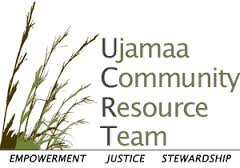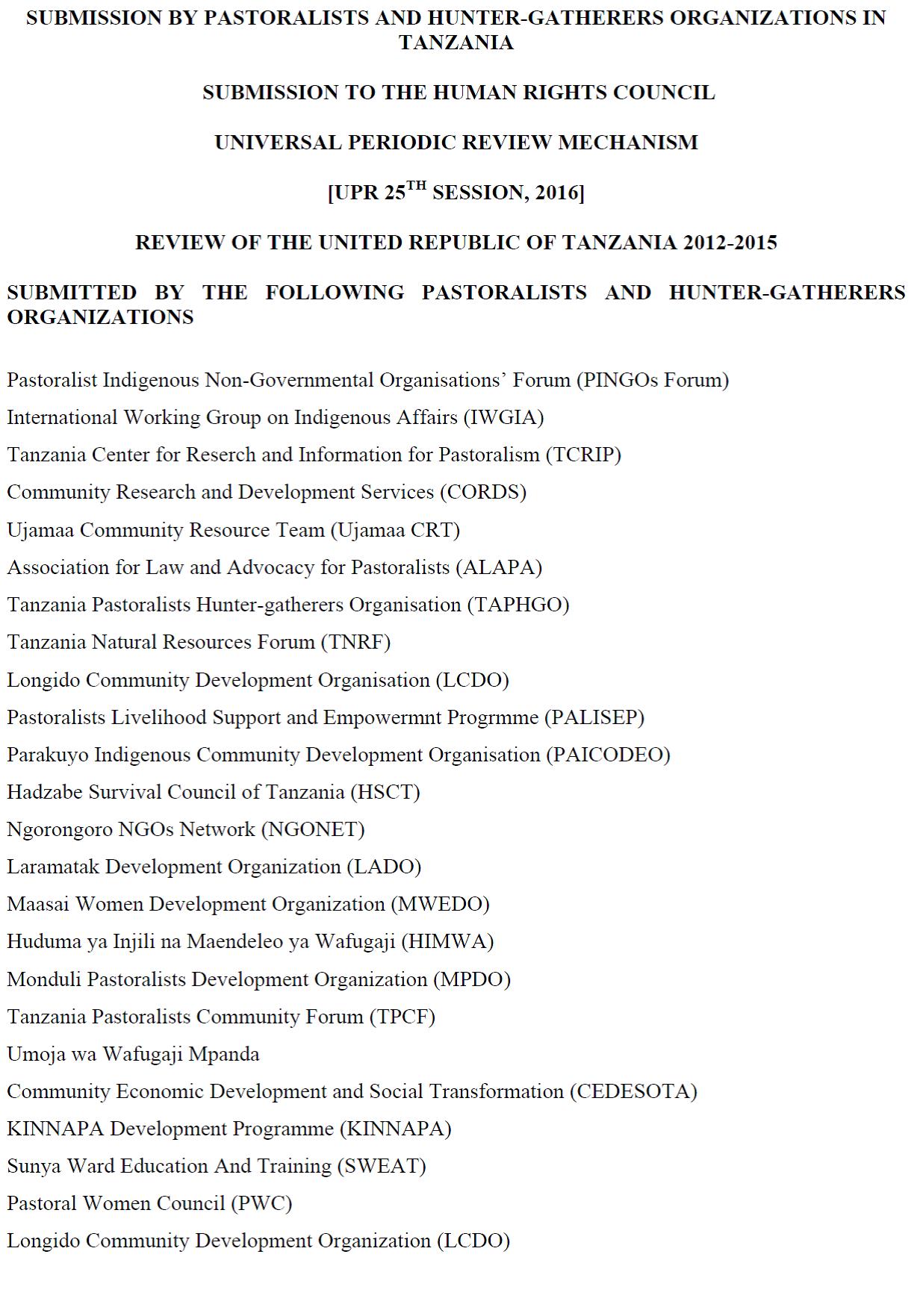Focal point
Location
Some of East Africa's most traditional pastoralist and hunter-gatherer communities are currently at great risk of loosing their land and resources due to progressive land encroachment and lack of representation in modern Tanzania.
UCRT works to empower marginalised people in the rangelands of northern Tanzania to secure rights to their natural resources and land.
UCRT helps these communities by representing their land rights, advocating on their behalf to local and national government, and securing legal ownership of their traditional lands.
We also help empower these communities to independently and effectively manage their land and resources, and to improve education, women's protection and advocacy, as well as their leadership and representation among the wider Tanzanian community.
Members:
Resources
Displaying 11 - 15 of 68Submission by Pastoralists and Hunter-Gatherers Organizations in Tanzania
This is a stakeholder submission prepared by a coalition of 24 pastoralists and huntergatherers’ Civil Society Organizations (CSOs), forums, networks and groups. The stakeholders submission is a compilation of primary and secondary sources of information, evidence and facts collected through consultative meetings and interviews with civil society organizations, public officials and community members, experts on pastoralism as well as members of the academia.
Submission by Pastoralists and Hunter-Gatherers Organizations in Tanzania
This is a stakeholder submission prepared by a coalition of 24 pastoralists and huntergatherers’ Civil Society Organizations (CSOs), forums, networks and groups. The stakeholders submission is a compilation of primary and secondary sources of information, evidence and facts collected through consultative meetings and interviews with civil society organizations, public officials and community members, experts on pastoralism as well as members of the academia.
Submission by Pastoralists and Hunter-Gatherers Organizations in Tanzania
This is a stakeholder submission prepared by a coalition of 24 pastoralists and huntergatherers’ Civil Society Organizations (CSOs), forums, networks and groups. The stakeholders submission is a compilation of primary and secondary sources of information, evidence and facts collected through consultative meetings and interviews with civil society organizations, public officials and community members, experts on pastoralism as well as members of the academia.
Submission by Pastoralists and Hunter-Gatherers Organizations in Tanzania
This is a stakeholder submission prepared by a coalition of 24 pastoralists and huntergatherers’ Civil Society Organizations (CSOs), forums, networks and groups. The stakeholders submission is a compilation of primary and secondary sources of information, evidence and facts collected through consultative meetings and interviews with civil society organizations, public officials and community members, experts on pastoralism as well as members of the academia.
Submission by Pastoralists and Hunter-Gatherers Organizations in Tanzania
This is a stakeholder submission prepared by a coalition of 24 pastoralists and huntergatherers’ Civil Society Organizations (CSOs), forums, networks and groups. The stakeholders submission is a compilation of primary and secondary sources of information, evidence and facts collected through consultative meetings and interviews with civil society organizations, public officials and community members, experts on pastoralism as well as members of the academia.


